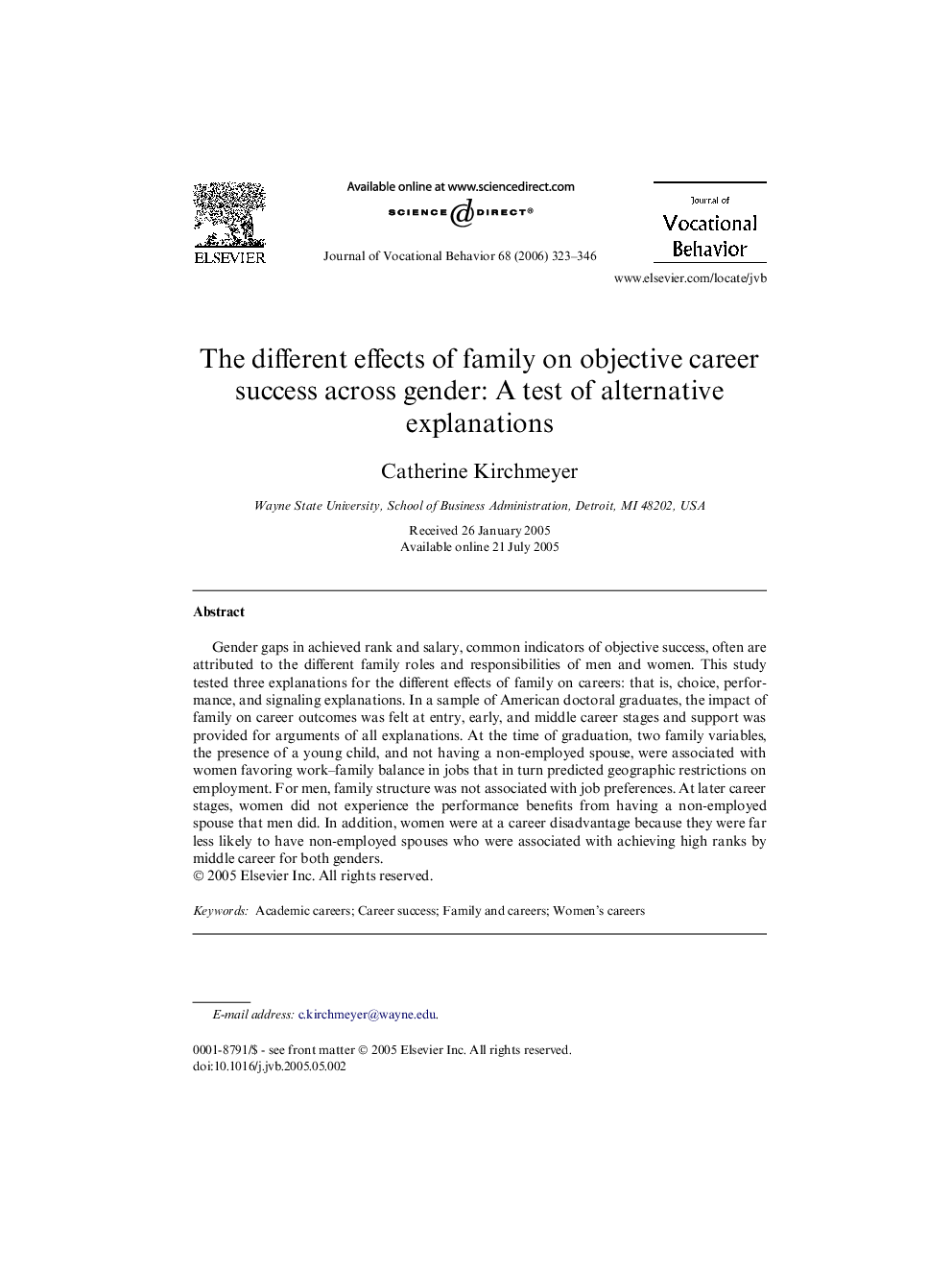| Article ID | Journal | Published Year | Pages | File Type |
|---|---|---|---|---|
| 887599 | Journal of Vocational Behavior | 2006 | 24 Pages |
Gender gaps in achieved rank and salary, common indicators of objective success, often are attributed to the different family roles and responsibilities of men and women. This study tested three explanations for the different effects of family on careers: that is, choice, performance, and signaling explanations. In a sample of American doctoral graduates, the impact of family on career outcomes was felt at entry, early, and middle career stages and support was provided for arguments of all explanations. At the time of graduation, two family variables, the presence of a young child, and not having a non-employed spouse, were associated with women favoring work–family balance in jobs that in turn predicted geographic restrictions on employment. For men, family structure was not associated with job preferences. At later career stages, women did not experience the performance benefits from having a non-employed spouse that men did. In addition, women were at a career disadvantage because they were far less likely to have non-employed spouses who were associated with achieving high ranks by middle career for both genders.
